
Community Song Books
Here is a small collection of ~6"x9" songbooks,
each containing from 60 to 360 selections.
According to their stated intentions, they are for:
|
|
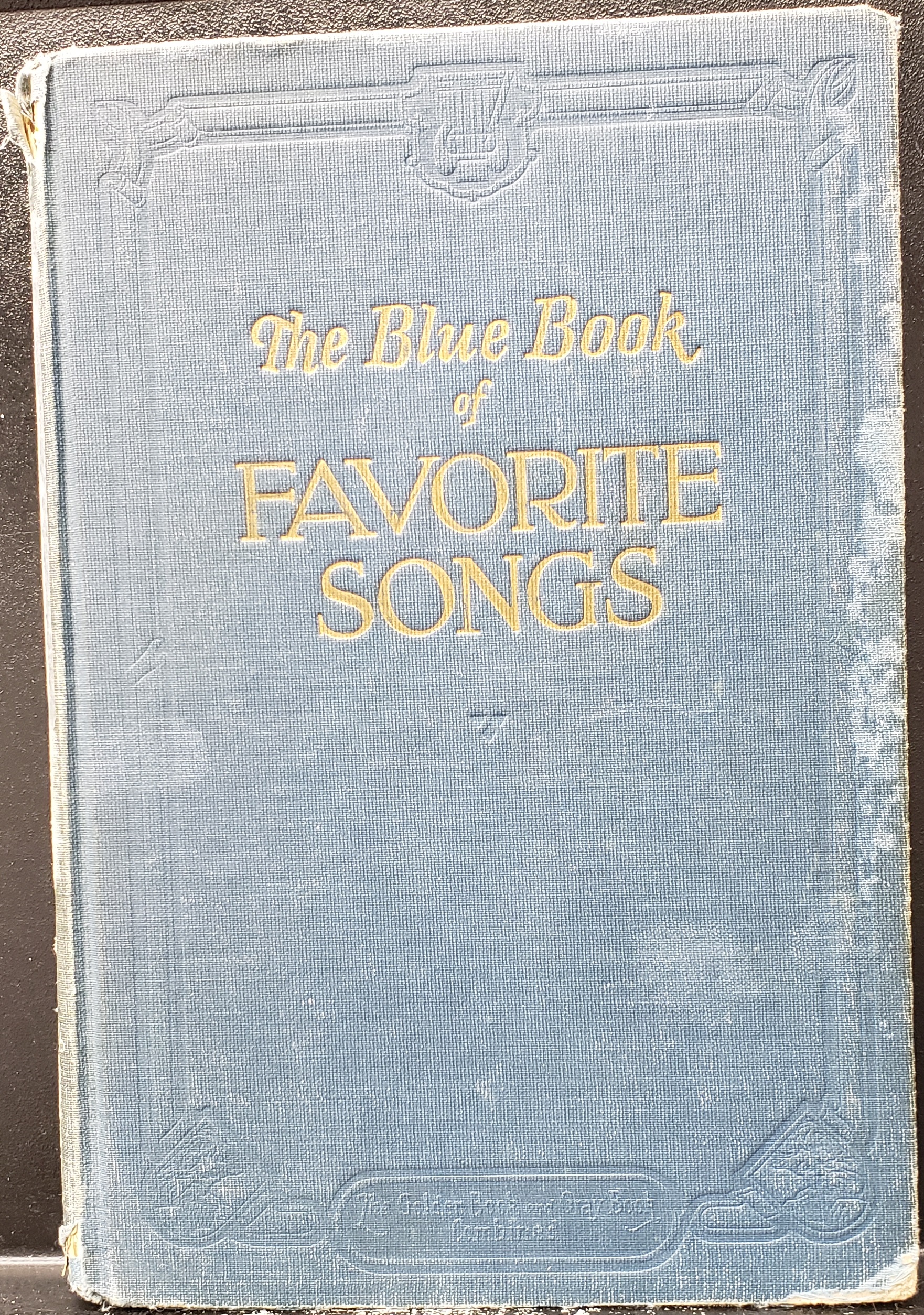
1928
The Blue Book Of Favorite Songs
compiled & edited by eight composers & teachers
published by Hall & McCreary Company
326 selections

1928
Sing Sociability Songs
published by The Rodeheaver Company
~230 selections

1935
America Sings
edited by Hugo Frey
published by Robbins Music Corporation
~200 selections
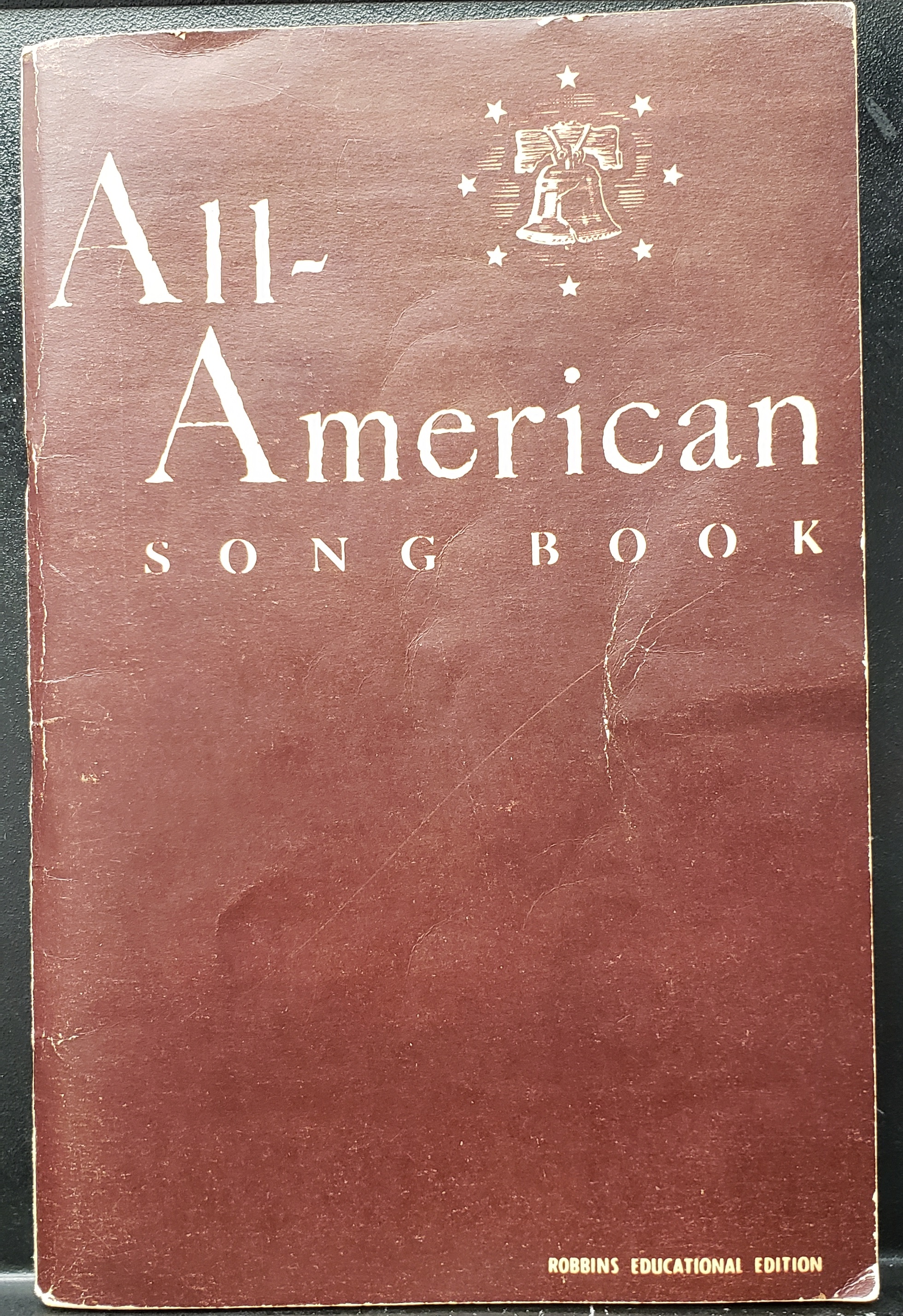
1942
All-American Song Book
edited by Joseph Maddy & Otto Miessner
published by Robbins Music Corporation
~160 selections
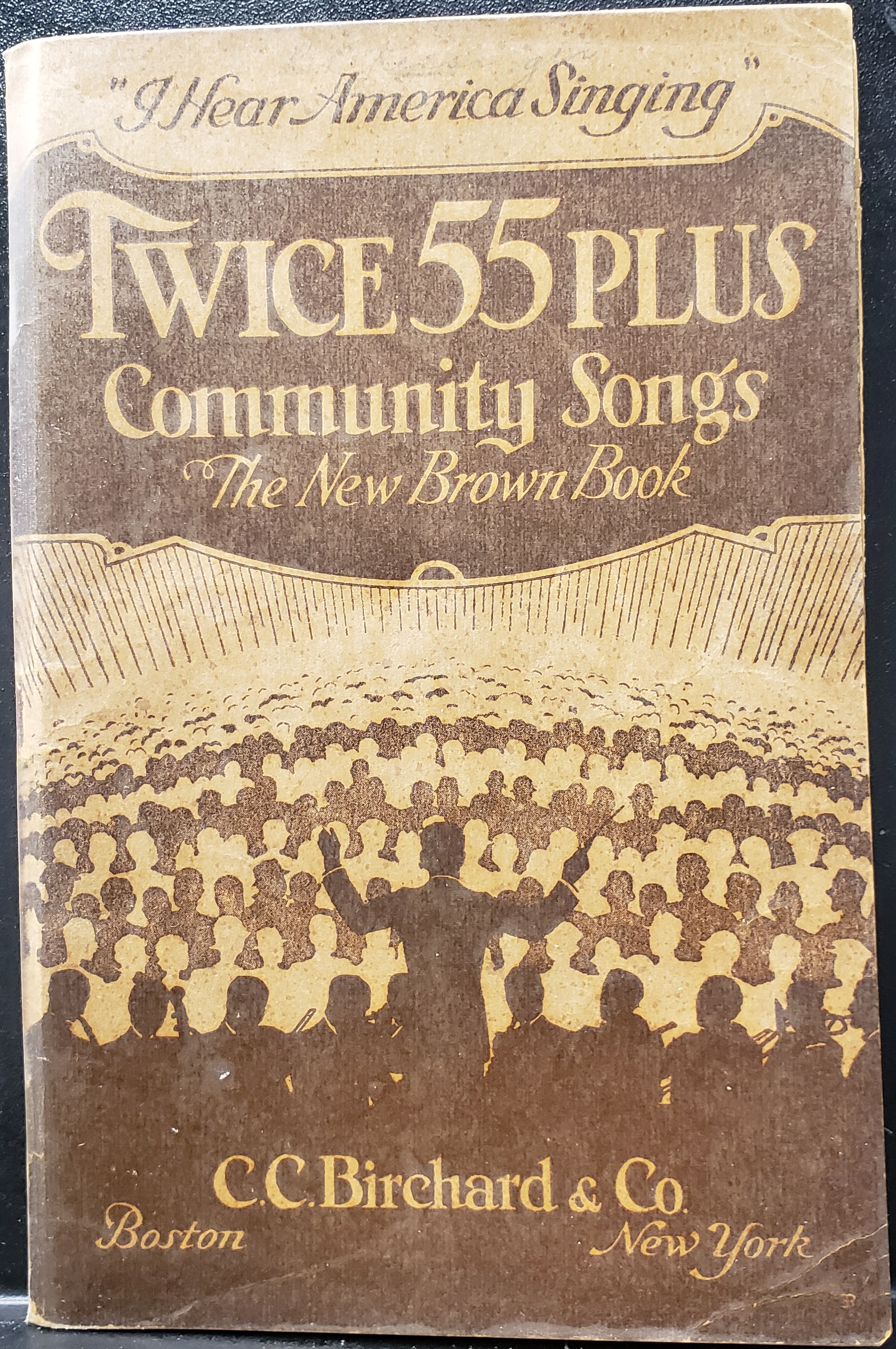
1949
Twice 55 Plus Community Songs
edited by four music teachers
published by C. C. Birchard & Company
~185 selections
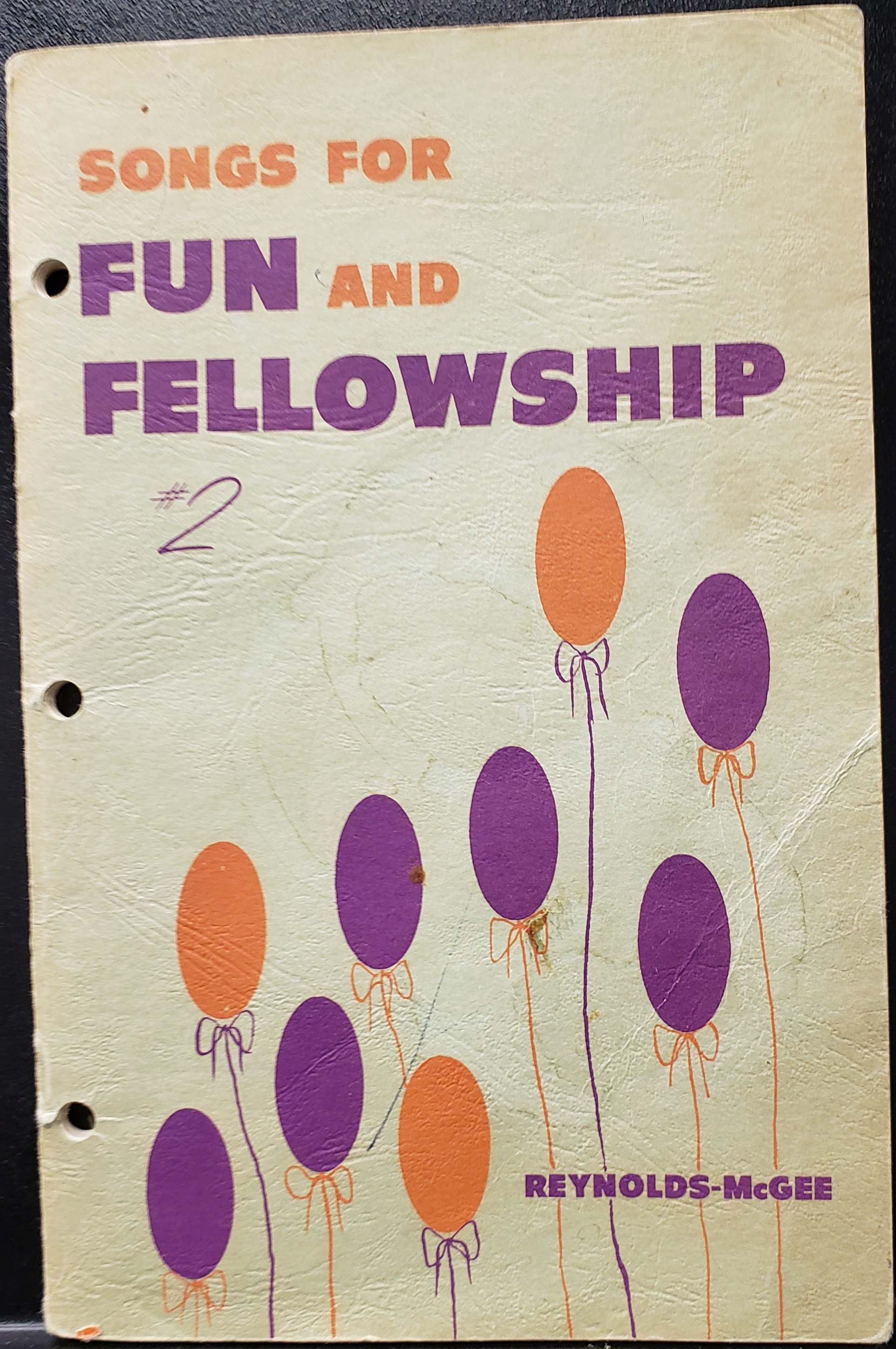
1961
Songs For Fun And Fellowship #2
compiled & edited by William Reynolds & Cecil McGee
published by Broadman Press
56 selections
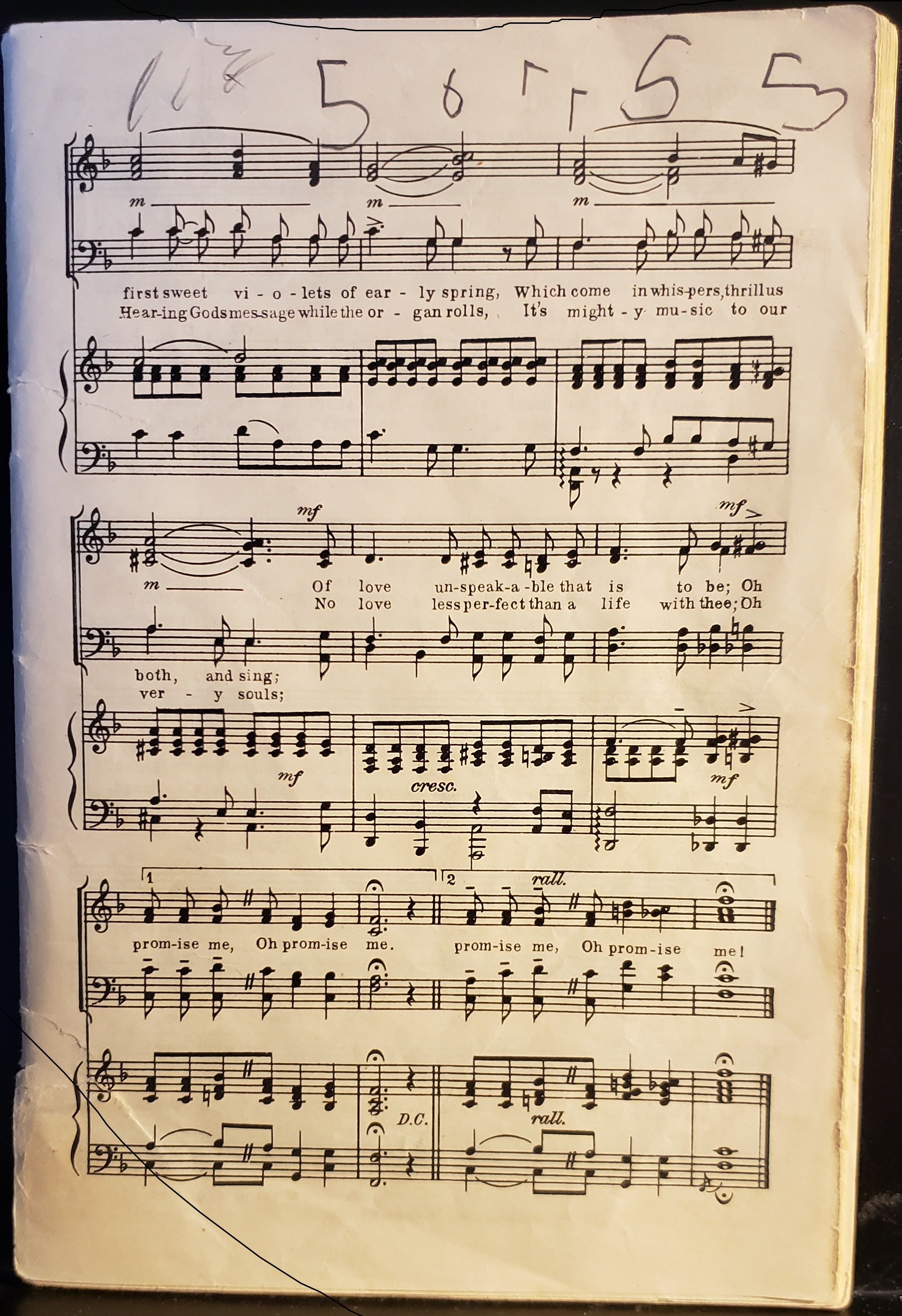
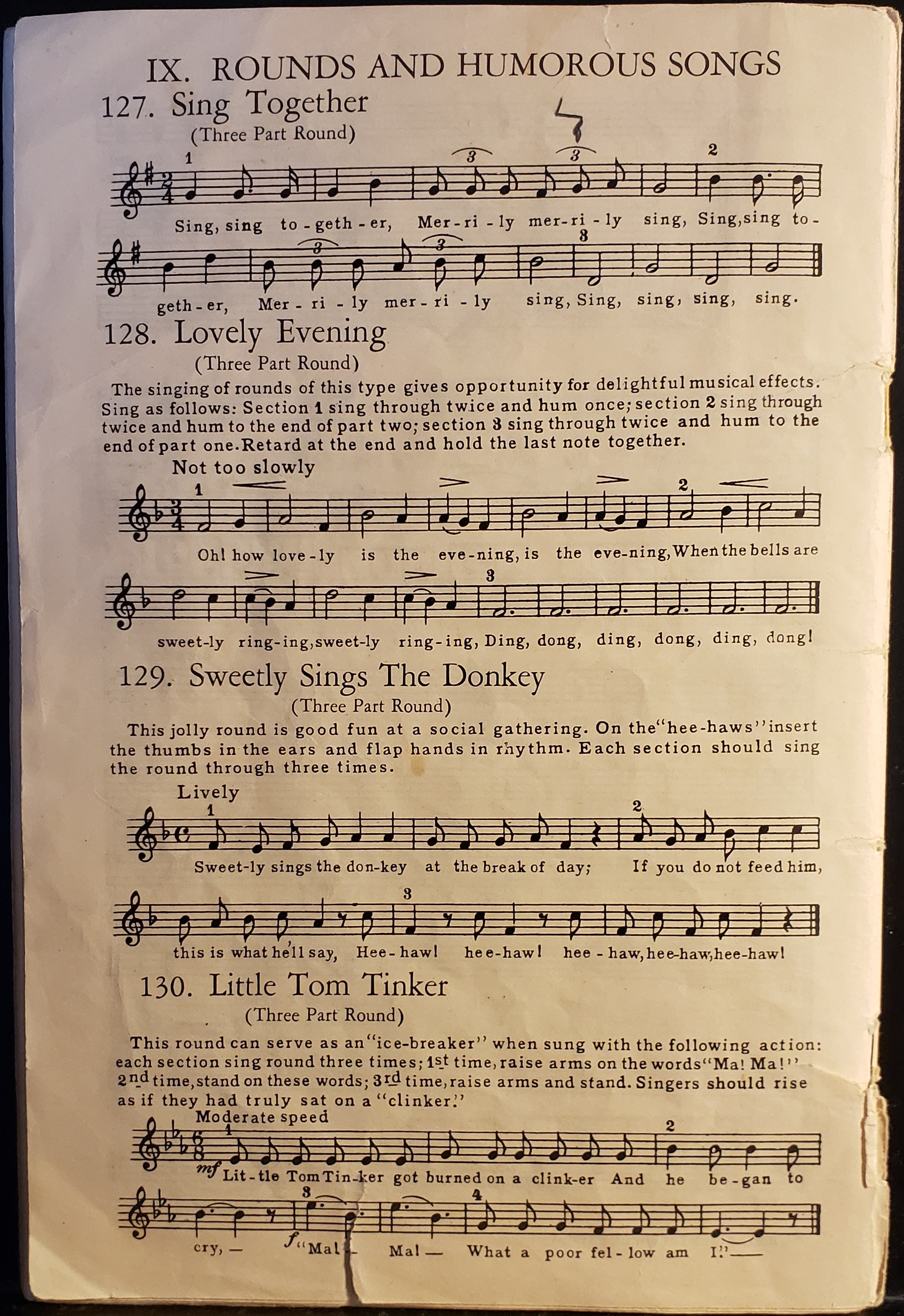
This one is missing its cover and an unknown number of outer pages,
but you can see that it contained at least 130 songs.
The [incomplete] song in the first picture is the love song
"Oh Promise Me," lyrics by Clement Scott, music by Reginald DeKoven.
Here are some interesting excerpts from these books. . . .
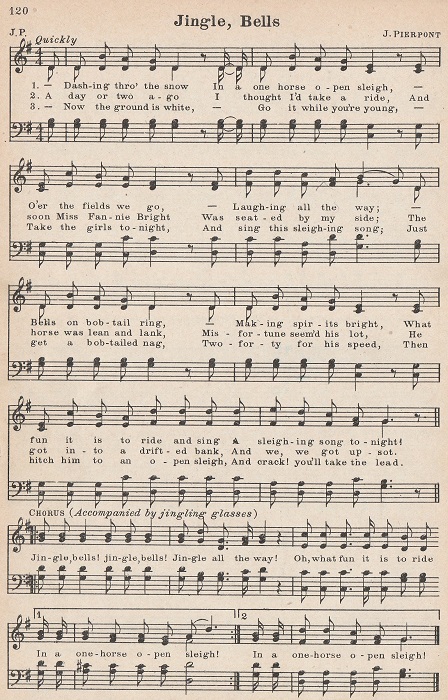 |
Two observations: 1. They still show the original comma in the title. 2. They gave credit to the songwriter instead of just saying it's "traditional." |
| And you thought John Milton only wrote "Paradise Lost"! |
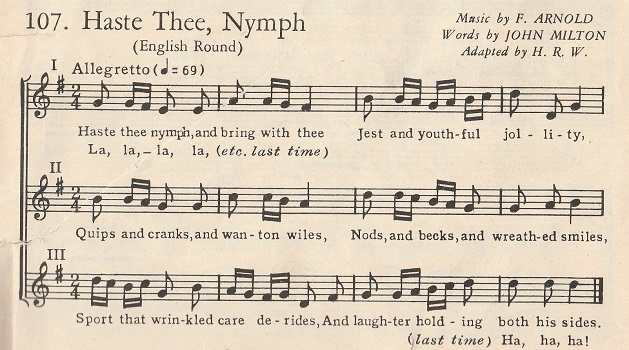 |
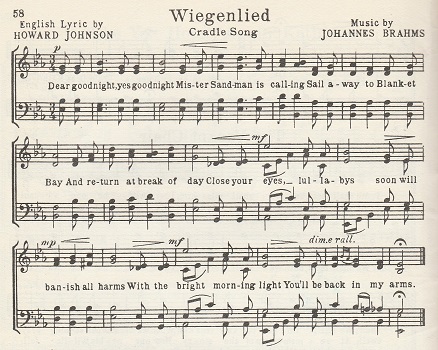 |
An amazing collaboration: the composer died before the lyricist had his 10th birthday! |
|
Two ironic things about the Suwannee River: 1. Stephen Foster was from Pennsylvania and never lived anywhere near that river. 2. That river's name is three syllables long. At least, it was before Foster wrote this song.
This is an example of what was called a minstrel song, |
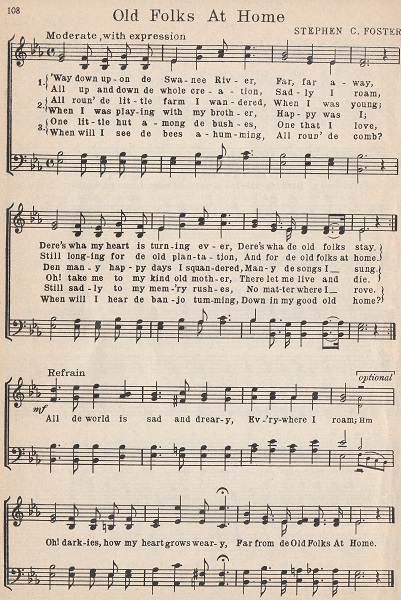 |
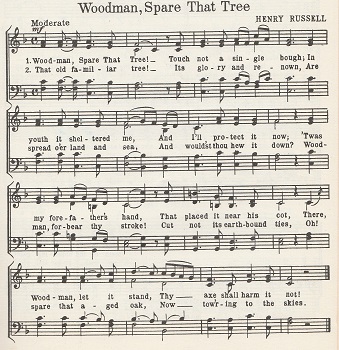 |
The song that started the popular treehugger song genre. |
| Oh yeah. I use that that word "seewallacy" all the time! |
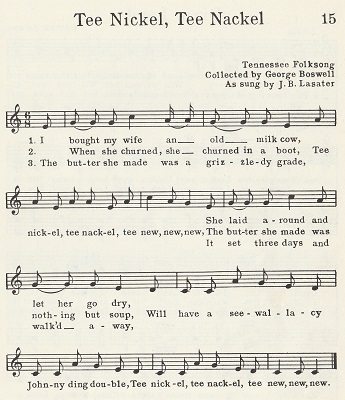 |
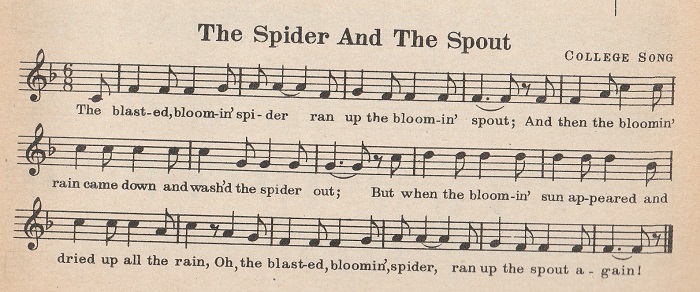 |
Some of you thought it was an itsy-bitsy spider. Some of you thought it was an eensy-weensy spider. You're both wrong. |
|
I tried to memorize these lyrics, but I never got past "Zz-z-z-z." Fortunately, that works for a lot of songs I know. |
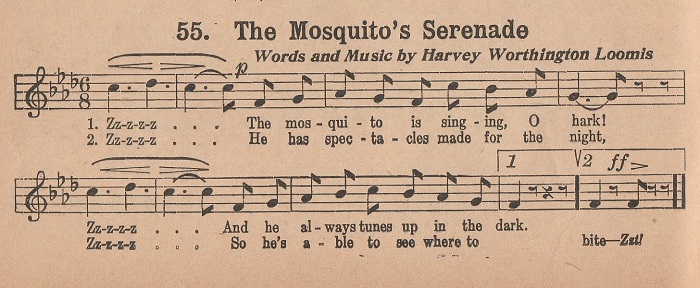 |
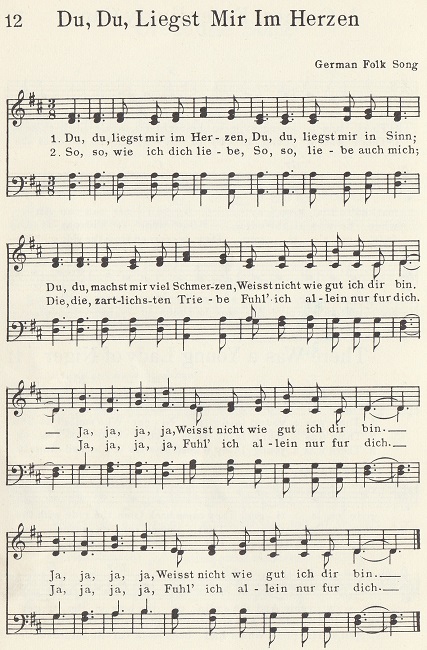 |
For those who don't speak German, here is the translation:
Wewe uko moyoni mwangu, |
| Next hit song I write will also be four measures long. . . . |
 |
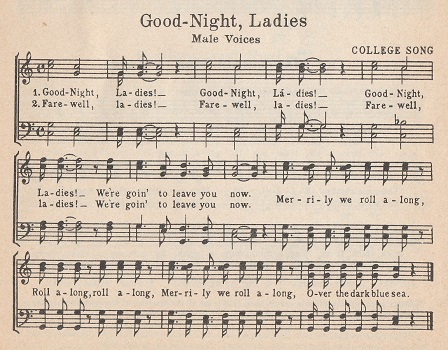 |
One of the first songs many beginners learn on just about any instrument is "Merrily We Roll Along." It only has three notes in it: do, re, & mi. The method books don't mention that it's actually the chorus of this song. |
|
No need for music on any of these songs. We've all known the tunes all our lives. |
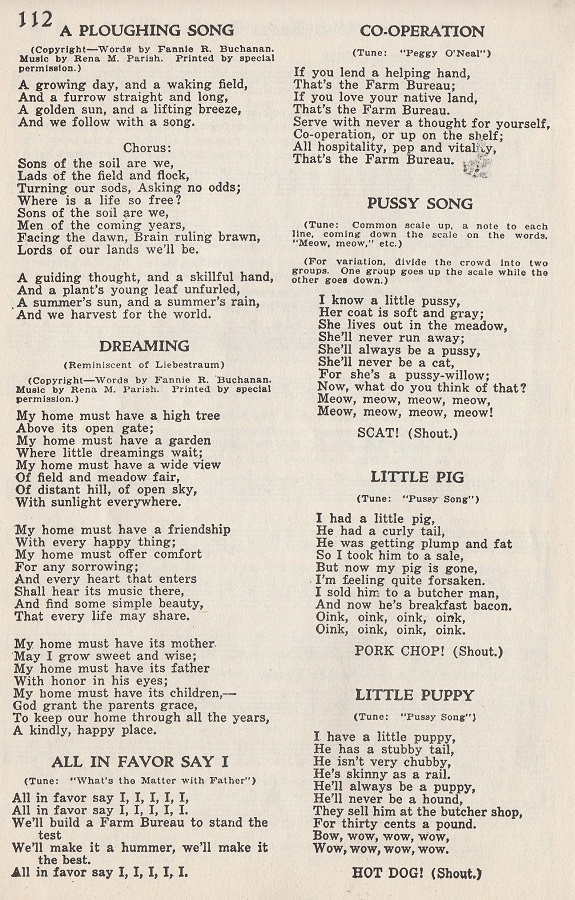 |
~ FURTHER READING ~
Here is a raison d'être from the preface of a community song book:
"This collection of songs represents a movement toward truer brotherhood
and spiritual awakening through mass singing—an effort to liberate
the spirit of the people through self-expression in song, and add to
growth in unity of thought and feeling, which is the foundation of
individual and national strength."